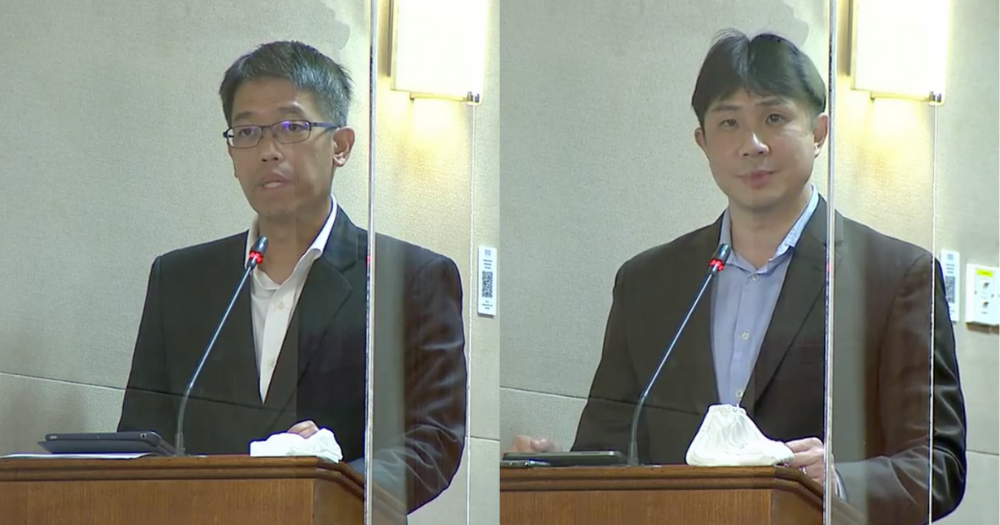Follow us on Telegram for the latest updates: https://t.me/mothershipsg
In Parliament on Feb. 1, the Government Parliamentary Committee on Sustainability and the Environment moved a motion calling for greater efforts in addressing climate change issues.
In response to the motion, several Members of Parliament (MPs) made their recommendations in support of the motion.
A significant portion of Workers' Party MP Gerald Giam's speech focused on how Singapore can build a green economy and workforce.
Green economy
Giam suggested that the government can introduce measures to speed up the transition.
These include introducing new funding and programmes to create jobs and stimulate economic activity in green industries, providing financial support to households and businesses to switch to cleaner energy sources as well as grants, loans and tax relief to promote green transport, clean energy research and circular economy.
For example, grants can be given to encourage SMEs to submit sustainability reports. ACRA could consider requiring a simplified environmental sustainability report from companies with revenue of over S$100 million and with more than 200 employees, Giam said.
Giam also asked if the aim to fully electrify transport can be more ambitious and proposed to bring forward the timeline to 2030 if possible.
Several countries are aiming to fully electrify transport by 2030 or earlier, these include the UK, Germany and Norway.
"Our 10-year COE system makes it easier than in most countries to have a fully electric automobile fleet sooner," Giam said.
Carbon tax can help to prompt transition to green economy
In MP Jamus Lim's speech, he proposed to refine the existing carbon tax.
Lim added that the carbon taxes can be directed towards a "Green Fund" that will further advance environmental objectives.
Lim said in his speech that a "properly calibrated carbon tax" can offer a more "decisive push" towards a climate-friendly reform of our domestic economy.
Lim highlighted that our energy and fuel sources are still very much fossil fuel-reliant and the number of hybrid and electric vehicles in Singapore remain "tiny".
The petrochemical industry contributes to three per cent of the country's national output and Singapore is the seventh-largest exporter of chemicals.
"What have we done to reduce this sector’s footprint in our local economy, and to transition toward more climate-friendly production?" Lim asked.
Lim added that China, despite its relatively lower per capita income, has made important leads in developing green technologies. Singapore can strive to find comparative advantage in certain niche areas, he said.
With that, Lim proposed that a sum of S$58/ton of GHG emissions, will promote such necessary shifts.
Wage support to help workers transit to green jobs
Giam also highlighted the need to support workers from the fossil fuel-related sectors who will be most affected by the green recovery.
Making reference to the International Labour Organisation's guidelines, Giam proposed to extend the Special Employment Credit (SEC) scheme to provide time-limited wage support to all Singaporean workers who are taking up their first job in the green economy.
Currently, under this scheme, employers will receive SEC for hiring older workers and persons with disabilities.
This will also incentivise companies to join the green industry and train their workers for this growing industry, Giam added.
Giam said:
"Our workers are the backbone of our economy. It is crucial that we find ways to leverage our manpower resources and develop a talent pipeline for the Green Economy."
Top image via CNA video screengrabs
If you like what you read, follow us on Facebook, Instagram, Twitter and Telegram to get the latest updates.

